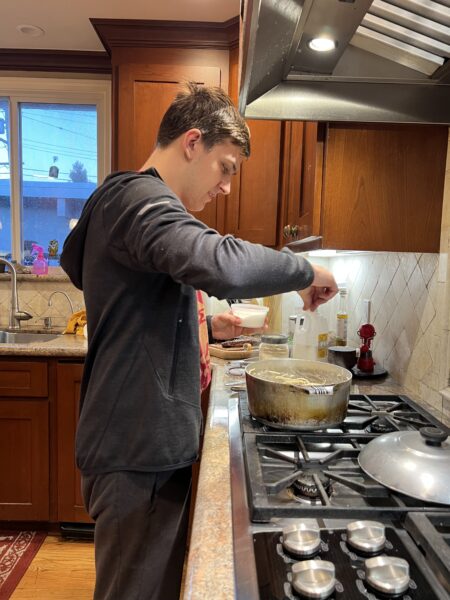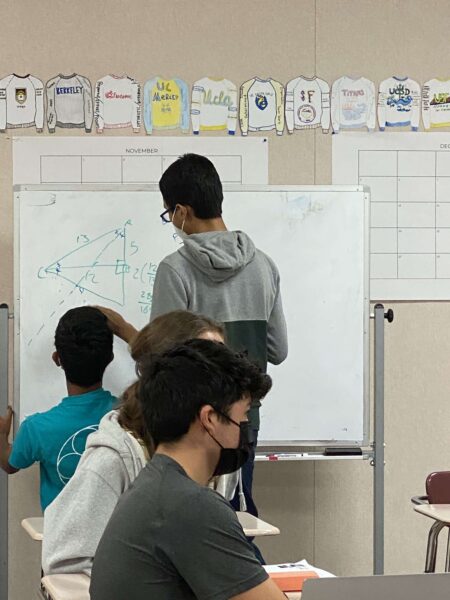
The advent of the internet, especially resources like YouTube and social media, has made it possible for anyone to learn new skills and hobbies without taking lessons. Many students independently pursue hobbies like cooking, programming, advanced academic subjects and competitive video games outside of school.
“I cook a lot for my family,” said senior Thomas Trimble. “You can start at any time. There are tons of recipes online that help you practice … it’s really cool when you start experimenting and [what you make] tastes good. [I learned] mostly [from] my mom, my dad and my older brother … My dad taught me how to barbecue, and my mom taught me how to cook in a pan.”
Some students pursue sportive hobbies, taking up personal fitness and wellness without formal coaching.
“You can start at any time”
“At the moment, I’m most passionate about lifting,” said junior Cooper Wong. “I had friends who were more knowledgeable and they introduced me to lots of things. Social media and online also have a ton of information about different exercises or ways to improve … It’s not too difficult to pick up the information on your own, and it saves a lot of money.”
Wong, a student at middle college, appreciates the freeform schedule of middle college that enables him to explore new hobbies.
“Middle college has enabled me to dedicate more time to the things I like,” Wong said. “The workload is not as bad and the schedule is more flexible so I’ve been able to pursue my new hobbies and passions more in depth.”

Some also pursue hobbies that are more academically oriented, such as advanced mathematics and chess.
“I started playing chess when I was in second grade, and I stuck with it since then, but I don’t play as much anymore,” sophomore Alex Zhao. “I had a coach a long time ago, but after that, it’s just [been] me playing. I looked at books … and played [matches].”
Zhao discusses the benefits and drawbacks of teaching himself more advanced math.
“I feel like I could do better without a teacher because I don’t like feeling confined”
“Without formal training, it’s very easy to get sidetracked,” Zhao said. “I’m frequently looking at math topics that you don’t need to know or care about. I just look at [them] because it’s interesting. Having a teacher can guide you and help you determine what is and isn’t useful, but I feel I could do better without a teacher because I don’t like [feeling] confined.”
As access to information expands, more students are able to learn about different subjects, developing skills and interests outside of professional lessons. This trend may lead to less emphasis on formal training and education in the future.



